
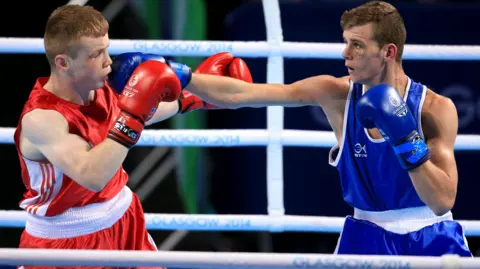 PA Media
PA Media
Boxing is another of the ten sports that will return to Glasgow
Track cycling and boxing are among the events that will be included in the Glasgow 2026 Commonwealth Games, it has been revealed.
A stripped-back programme of 10 sports, announced on Tuesday, also includes athletics and swimming as mandatory - but badminton and hockey have been dropped.
The Games, last held in Glasgow in 2014 at a cost of over £540m, will take place across across four venues between 23 July and 2 August 2026.
Glasgow stepped in to host after the Australian state of Victoria pulled out because of rising costs.
A total of 3,000 athletes from up to 74 Commonwealth nations and territories are expected to compete at the 2026 Games.
The event will also feature "fully integrated para-competitions” across six of the selected sports.
Katie Sadleir, chief executive of the Commonwealth Games Federation (CGF), said: "The Games promise to be a truly immersive festival of sport and celebration of culture and diversity that inspires athletes and sports – with a fan experience more accessible than ever before."
First Minister John Swinney said the event is an exciting opportunity for the people of Scotland.
He said: “While Glasgow 2026 will look quite different to previous Games, we can, and we must, use this as an opportunity to work collaboratively to ensure that this new concept brings a strong and sustainable future for the games."
The Scottish Secretary Ian Murray called the confirmation a "a great example of the UK and Scottish governments working together to deliver for Scotland”, citing the £2.3m put forward by the UK government for security costs.

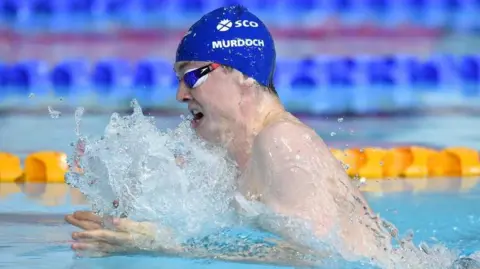 PA Media
PA Media
Swimming will feature at the 2026 Commonwealth Games in Glasgow
What sports are included?
The CGF said the a number of factors, including "universality of participation and quality of competition" as well as local appeal were considered when deciding what sports to include.
The last time the Games were in Glasgow, 17 sports were contested - this time they will feature 10 sports:
Athletics and para-athletics (track and field only)Swimming and para-swimmingArtistic gymnasticsTrack cycling and para-track cyclingNetballWeightlifting and para-powerliftingBoxingJudoBowls and para-bowls3x3 basketball and 3x3 wheelchair basketball
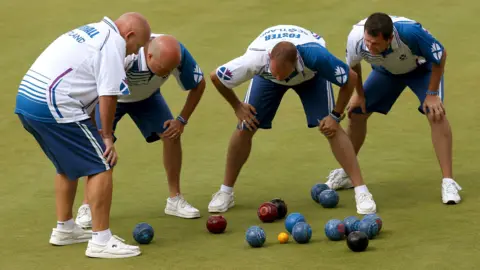 PA Media
PA Media
Bowls is set for a Commonwealth Games return but will be played indoors
Organisers said they understand that fans and athletes of sports not included will be "incredibly disappointed" but that these games will not influence future inclusion.
Some sports such as cycling and gymnastics have had their disciplines slimmed down.
The cycling programme for Glasgow 2014 included mountain biking and road races but this time athletes will only compete on the track.
In gymnastics, there is no room for any rhythmic events, with only artistic gymnastics being included.
There will also be no diving competitions.
Organisers told the BBC's Good Morning Scotland programme that the bowls competition - which was held outdoors at Kelvingrove in 2014 - would be held indoors at the SEC campus in 2026.
Hockey has been dropped from the programme despite a national hockey centre being built for the last Glasgow Games.
Ian Reid, the chairman of Commonwealth Games Scotland, said hockey had missed out for a "number of factors".
He explained: "You can imagine the balance we're trying to weigh up, between trying to use the minimum number of venues to keep costs down, looking at home nations success, the number of athletes - hockey would be an additional venue [and a] huge number of athletes that we would have to accommodate."
There will be no road-based events such as the triathlon or marathon on the programme - these were previously free for spectators to attend in 2014.
Rugby sevens, which was previously hosted at Ibrox Stadium is also out and there will be no racquet sports at all.
Mr Reid said playing other sports at Scotstoun - home of the Glasgow Warriors rugby team - were looked at but would not be possible for "technical reasons".
He added that 3x3 basketball had been selected due to it being an easy sport to integrate with para-sport, and that it would help bring a younger audience to the Games.
The event will feature an opening and closing ceremony and there will be some form of King's baton relay before the Games.
An estimated 500,000 tickets will go on sale for the various events, with the Games expected to be worth £150m to Glasgow.
Mr Reid said he expected audiences for the Games to be around half the size as in 2014.
The CGF confirmed putting on the Games is expected to cost approximately £114m.
It will pay £100m towards the bill, with £2.3m coming from Commonwealth Games Australia - who pulled out of hosting the event - as well as £2.3m from the UK government.
The balance will come from commercial revenue such as ticket sales, broadcast rights, commercial sponsorship and merchandise.

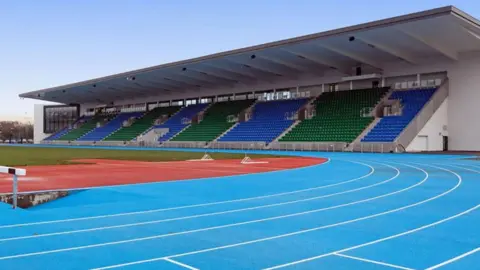 Glasgow Life
Glasgow Life
Scotstoun stadium will host the athletics competitions
The four venues which will be used during the event will be the Emirates Arena, Tollcross International Swimming Centre, the Scottish Events Campus and Scotstoun stadium.
Organisers said these venues were "operationally viable and economically valuable".
They confirmed that Scotstoun will only host the athletics, while the Scottish Event Campus and Emirates Arena will host multiple sports.
It has not been decided exactly which sports will take place in which venues.
No additional venues will be built to keep costs low, but some upgrades such as temporary seating will be made at the four venues.
Athletes and officials will stay in “existing accommodation across the city”.
Mr Reid added that hotels around the SEC would be used heavily for athletes.
He said: "What we're looking at is putting as many of those athletes into those rooms as we possibly can - given the proximity of all those athletes we're going to see if we can create a bit of an athletes village feel.
"We can put shared infrastructure and shared facilities in there so athletes can mix and feel like they're in a village, but we don't have to build it [and] have the risk that comes with that."
When asked if the amount of athletes staying in hotels would make it difficult for spectators to secure accommodation, he pointed to the number of hotels in the city and that student accommodation would also be an option.
The future of the games at stake
Analysis by Chris McLaughlin, BBC Scotland sports news correspondent
Organisers have spent the past few weeks in talks with sporting bodies and delivering the news to some that they must sit this one out.
It’ll be a bitter blow to some and a surprise to others.
Badminton and hockey could feel particularly aggrieved, given the profile of both sports on the Commonwealth stage, but it’s an indication of the hard decisions that have been taken, and those to come.
The biggest crowd pleasers remain and, in general, there is a plan but by usual standards, it is still a very rough one.
The big pitch that eventually convinced a sceptical Scottish government, and an even more sceptical Glasgow City Council to get on board, now has to be made to fill the key posts that will drive Glasgow 2026 over the line.
Only those used to working to very tight deadlines and even tighter budgets, need apply.
The official rubber stamping and announcement of the sport programme is a big milestone and the first look at what people can expect from this new look event.
Can it really be a blueprint for the future of this troubled event?
The reputation of the city as a host city for elite sporting spectacles and the very future of the Commonwealth Games is at stake.



 Movie
Movie 2 months ago
70
2 months ago
70 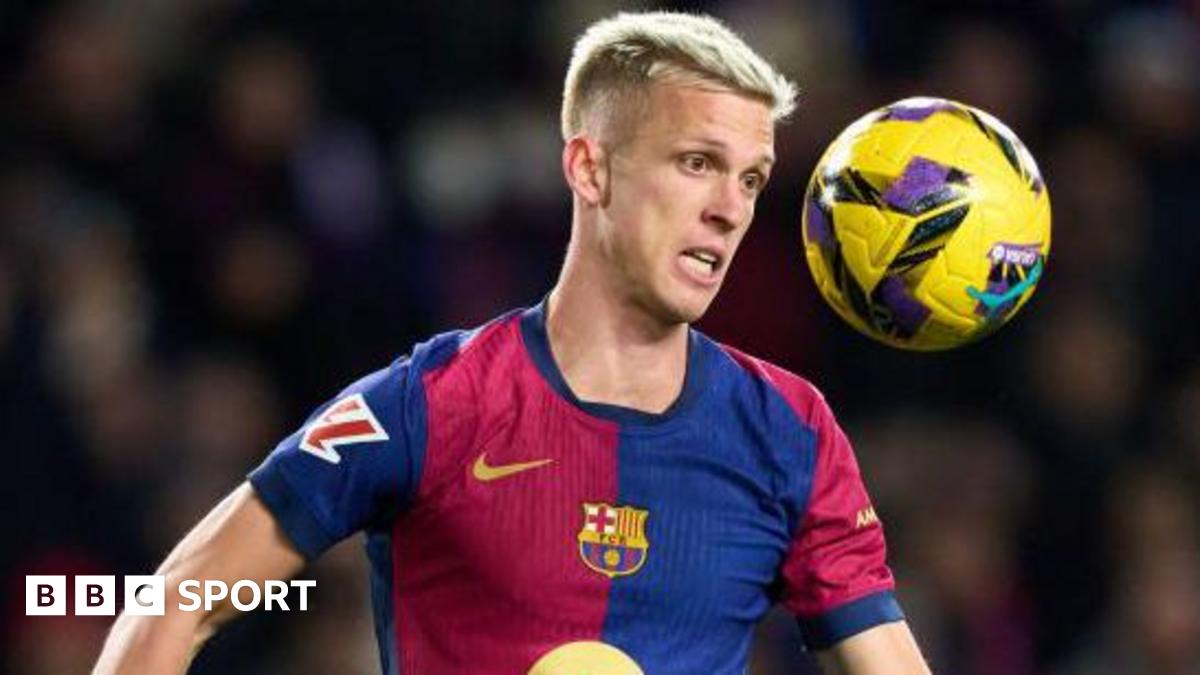
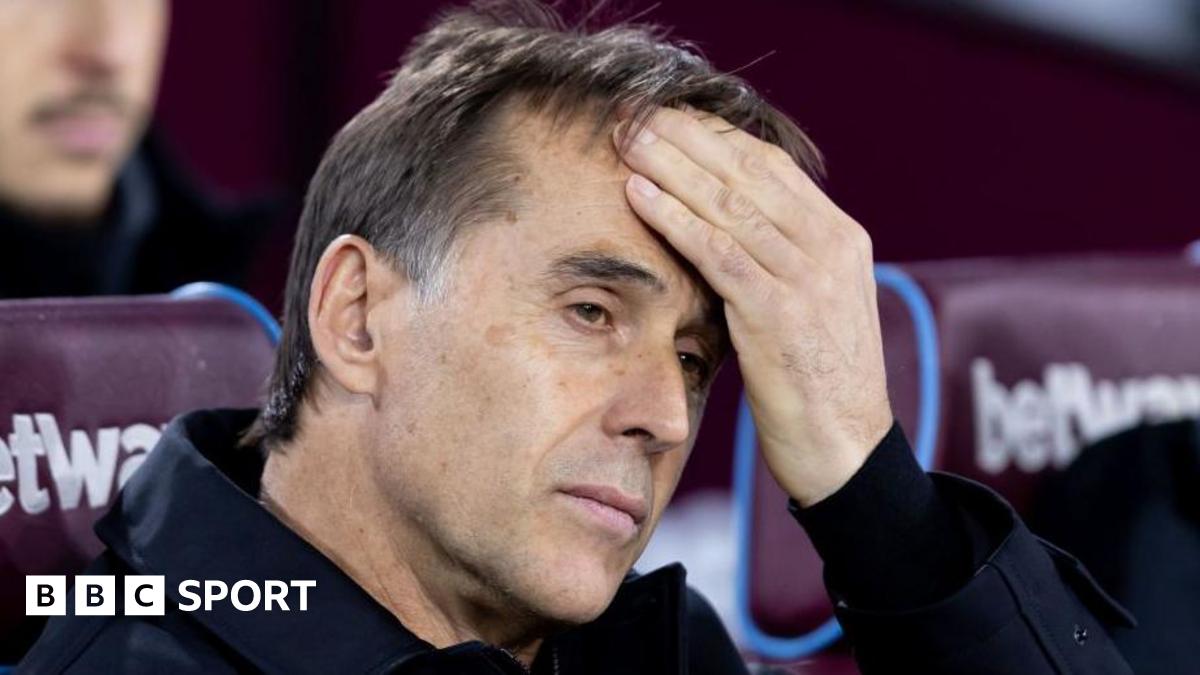
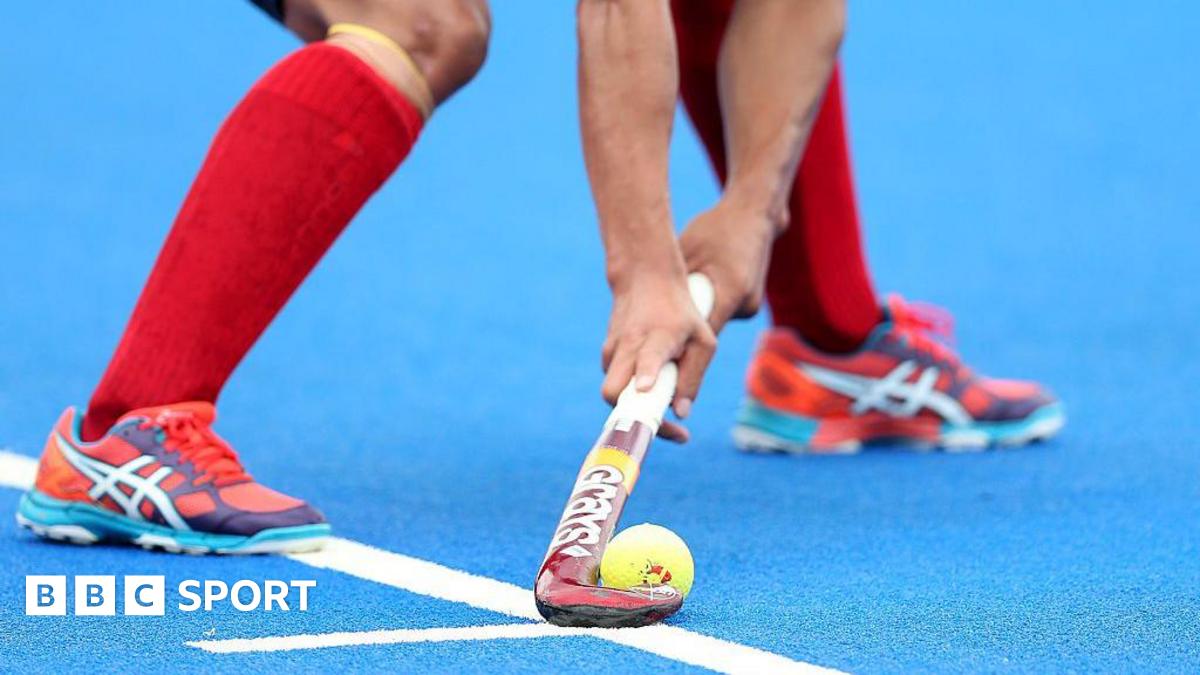


![Presidents Day Weekend Car Sales [2021 Edition] Presidents Day Weekend Car Sales [2021 Edition]](https://www.findthebestcarprice.com/wp-content/uploads/Presidents-Day-Weekend-car-sales.jpg)



 English (United States)
English (United States)